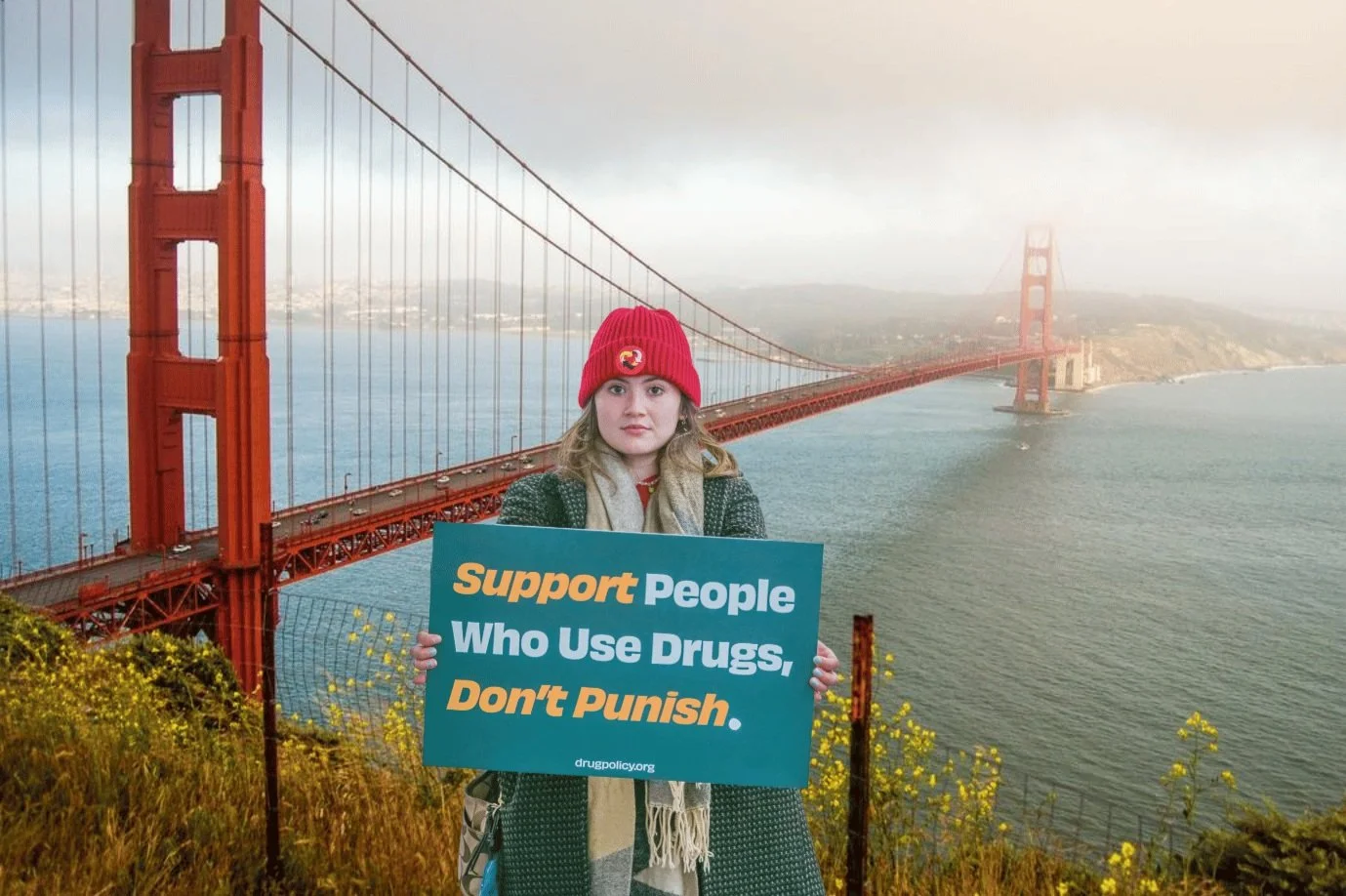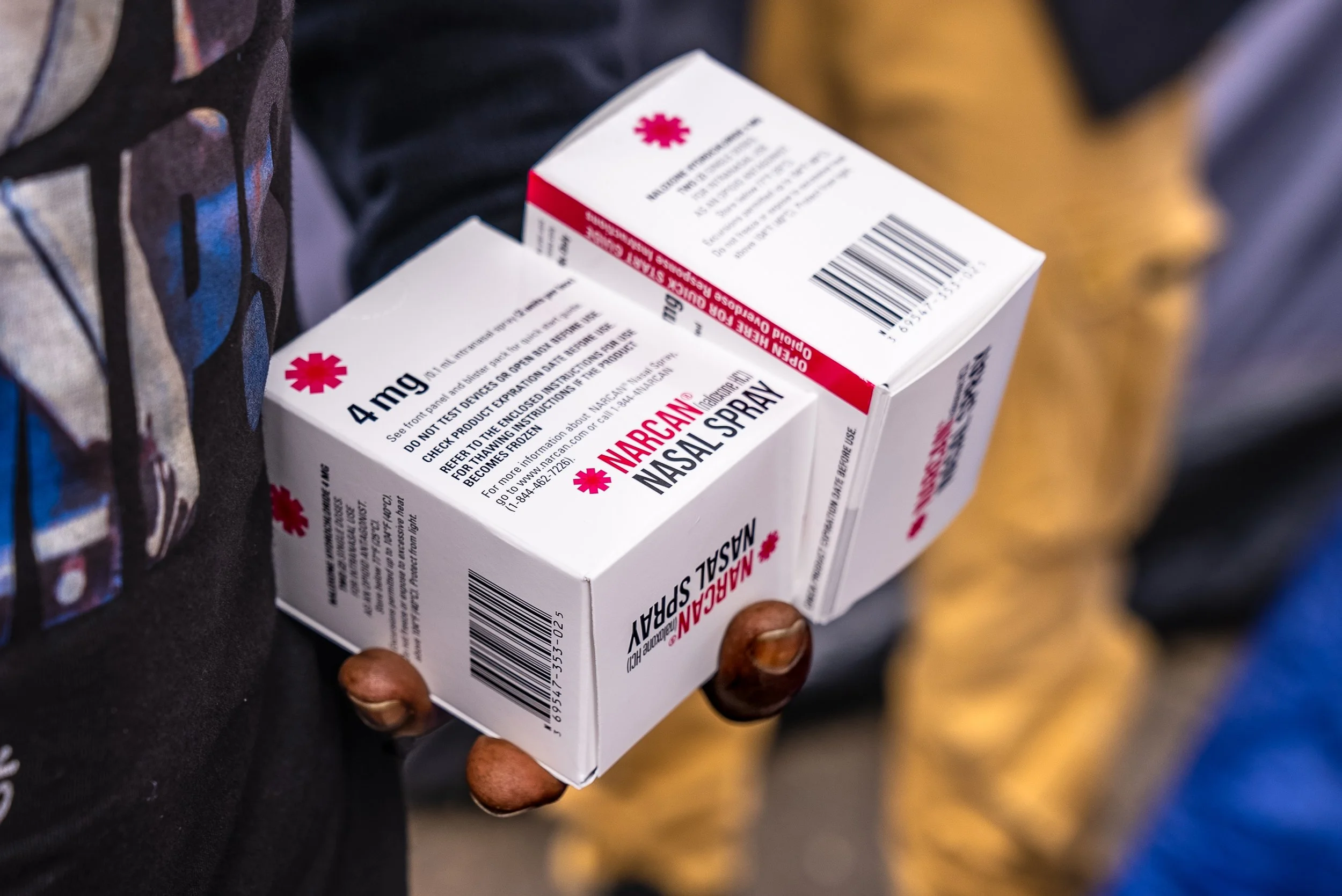evidence-based Solutions for Better Drug Policy
Our communities deserve policies that embrace the full humanity of people, regardless of their relationship to drugs. Instead of failed approaches of the past that created the interrelated crises of overdose, homelessness, and public suffering, we must invest in front-line services that protect health and enhance connections to care, improve access to evidence-based treatment, and implement meaningful overdose prevention strategies.
End sanction-based laws that Stigmatize and create Barriers
No one should face stigma, arrest and marginalization because of drug use.
Arrests and detention are proven to increase harm and create lasting barriers to health, stability and social connection.
Criminal and civil penalties also form new barriers to care - preventing many from seeking support from harm reduction and treatment professionals, and threatening program providers best positioned to provide services.
-
For decades policymakers have prioritized punitive responses to drugs over health-centered approaches.
Yet criminalizing drug use has not made our communities safer or healthier. Research consistently shows that arrests and incarceration of people for their drug use does not reduce drug use.
Instead, cycling people into jails and prisons causes substantial harms.
Creating lifelong barriers, including the loss of occupational licenses, housing, and employment.
Discouraging people from seeking help out of fear of arrest or civil sanctions.
-
People who use drugs in problematic ways need support, not criminalization. Everyone who needs and wants such support should be able to access it on demand - including basic health care, sterile equipment, peer support, drug checking programs, and addiction treatment and recovery services. A health-centered approach prioritizes investments these services instead of spending on needless detention and prosecution.
A health-centered approach recognizes that we must also invest in addressing the root causes of risky drug use, which includes trauma, poverty and housing instability. And it must acknowledge that past policies emphasizing criminalization have increased instability for many people.
By focusing resources on improving health and repairing past harms, we strengthen our communities instead of fracturing them.
Health-based policies must center the voices of those most impacted, respect dignity and autonomy, and focus on evidence-based interventions.
-
Criminalization and sanction-based approaches have cost communities billions, yet overdose rates continue at near record levels.
Community reinvestment means prioritizing city, state, and federal funds for the support communities need. For example, funding voluntary addiction services, harm reduction services, and social supports over more policing, surveillance, carceral facilities, and punitive supervision.
Expand Access to evidence-based Drug Treatment and Recovery Services
Evidence-based care should be readily available for those seeking it.
This includes immediate access to voluntary, low-barrier addiction treatment and behavioral therapy to address trauma.
Remove barriers and create many points of connection by investing real resources into expanding systems of care — including overdose prevention, harm reduction services, healthcare and stable housing — through non-judgmental and client-centered practices.
-
The majority of people will manage their substance use without seeking professional help. Some people simply need harm reduction support and tools to be safer. Others who develop issues with their use will choose to pursue professional substance use disorder treatment.
Those who do should receive on-demand access to effective substance use disorder (SUD) treatment based in evidence, health, equity, and human rights.
Common treatments include:
Psychosocial (behavioral)
Medications for Opioid Use Disorder (MOUD)
Self-help groups
Many people who desire treatment face challenges, such as cost or lack of providers, that stop them from accessing the services they want.
-
These treatment principles are a guide to achieving the highest standard of care:
Treatment must be available on demand, affordable, accessible, and attractive.
Treatment must be voluntary, client-centered, and grounded in human rights.
Treatment must be based on the best evidence, constantly monitored, and evaluated.
Treatment must address the whole person and be integrated with health and social services.
Treatment must be culturally sensitive and responsive to the needs of special populations.
Treatment should be provided by trained and credentialed health professionals.
People involved in the criminal legal system should have access to the full range of treatment.
-
Some policy mandates treatment by forcing people into very limited, often ineffective treatment options.
Forced “treatment” is rejected by scientific and health researchers for being ineffective or harmful. It increases overdose risk, it can cause dangerous withdrawals from forced detoxification, and people often relapse after completion.
Substance use disorder treatment should be voluntary, effective, affordable, accessible, and appealing.
Invest in Community based systems of connection and care
Community-based systems of care promote connections and support for people who use drugs.
Harm reduction interventions seek to reduce the harms associated with both drug use and punitive drug policies.
Replace systems that cause more harm with ones centering dignity, care and support. Research consistently shows that detaining and criminalizing people for their drug use increases risk of overdose and creates barriers to services, jobs and housing.
-
Harm reduction acknowledges the dignity and humanity of people who use drugs. It empowers people with tools that reduce the risks of drug use, prevent overdose, improve health, and save lives.
Harm reduction is about options, not judgement. This includes:
stable housing
fact-based drug education
voluntary drug treatment
access to overdose-reversal drugs like naloxone
drug checking that can detect adulteration in the drug supply
syringe exchange services
overdose prevention centers
-
Overdose prevention centers (OPCs) are sites where trained professionals can reverse fatal overdoses. They also connect people with addiction services and social supports, including treatment, healthcare, and more.
OPCs save lives, promote wellness, and benefit communities. At an OPC, people receive support without judgment or bias.
-
Punitive drug policy touches almost every aspect of daily life, including housing, employment, education, public benefits, and more.
These civil systems are foundational to health and wellness. People who use drugs deserve to access essential needs without discrimination or punishment.
Civil systems should provide support and resources, not cause harm.



